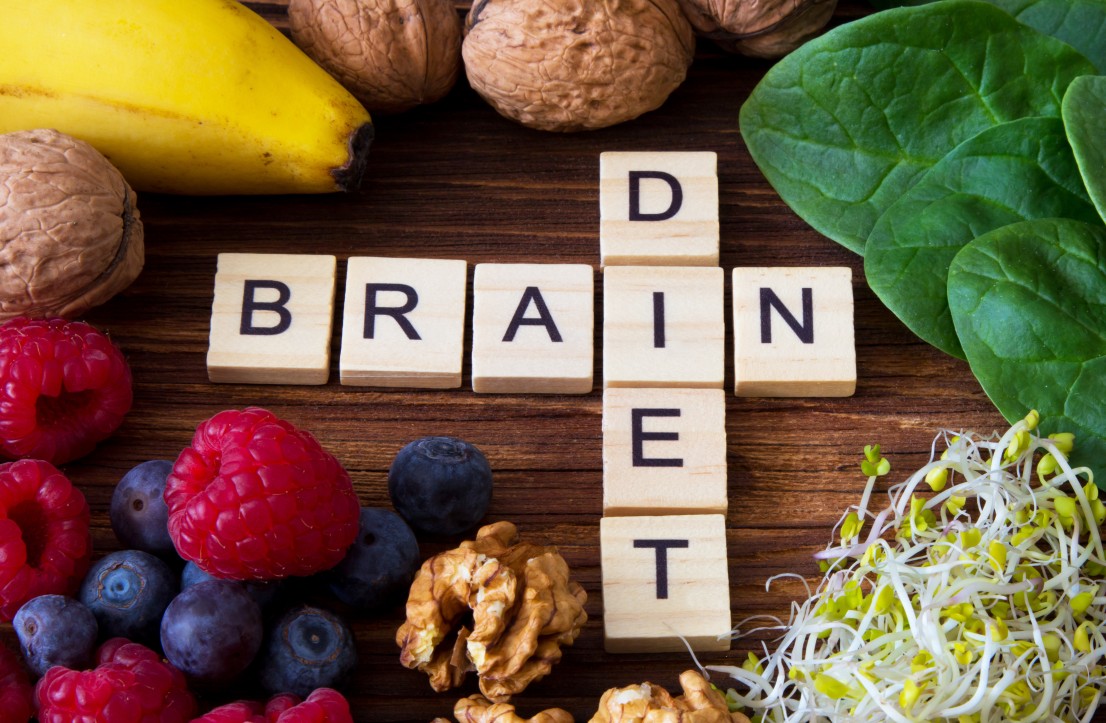
Healthy eating benefits the body and brain. Proper diet and nutrition play a vital role in maintaining overall wellness. You might not think as much about the role diet and nutrition play in impacting your brain health.
Some foods and their nutrients are particularly conducive to promoting brain function. Increased studies prove just how essential a healthy diet is for appropriate brain function. Research continually reveals that many conditions that impact the aging mind might be mitigated when certain foods are added to the diet. These conditions include memory loss such as dementia and also Parkinson’s Disease.
Read More »Nuts
Research shows that nuts may improve heart wellness markers and that having a healthy heart contributes to having a healthy brain. Nuts are said to improve cognition and assist in the prevention of neurodegenerative diseases.
Women who have eaten nuts regularly over many years exhibit sharper memory than those who don’t eat nuts. Nuts offer many brain-boosting nutrients including healthy fats, plant compounds, antioxidants, and vitamin E.
Many of the nutrients found in nuts could explain the brain-wellness benefits they offer. Vitam E has been found to shield cell membranes from the damage that can be caused by free radicals. This helps to slow mental decline.
Peanuts and peanut butter are both sources of healthy fats. They are packed with vitamin E and can help keep the brain and heart-healthy. Hazelnuts are also a good choice. While all nuts can be beneficial to brain-wellness, some appear higher on the list.
Almonds
Almonds, in particular, benefit memory function because of the substantial amount of vitamin E they contain. Vitamin E plays a significant part in the prevention of cognitive decline. They also contain vitamin B6. This pyridoxine assists in metabolizing proteins, an essential process for the brain’s cellular repair.
Walnuts
Walnuts may be the most beneficial because they also deliver omega-3 fatty acids.
Dark Chocolate
Dark chocolate contains brain-boosting compounds such as caffeine, antioxidants, and antioxidant plant compounds called flavonoids. The flavonoids found in chocolate gather in parts of the brain associated with memory and learning. Research shows that these compounds may slow age-related mental decline and further enhance memory.
Oranges
One medium orange contains a full day’s worth of vitamin C. Eating oranges helps prevent mental decline. This is because o vitamin C plays a key role in that process. Reviews have shown that eating ample amounts of vitamin C rich foods protects against age-related mental decline.
Vitamin C
Vitamin C is a powerhouse antioxidant. It is instrumental in fighting off free radicals that cause brain cell damage. As you age, vitamin C continues to support brain quality.
Other sources of vitamin C
Tomatoes
Strawberries
Kiwi
Bell Peppers
Guava
Fatty Fish
Fatty fish is one of the most well-known brain foods. Trout, salmon, and sardines are all fatty fish and are rich in omega-3 fatty acids. Nearly 60% of the brain consists of fat, half of which uses omega-3s.
This portion of the brain uses omega-3s to build nerve and brain cells. Omega-3s are required for brain memory and learning. Additional these fatty acids reduce the progression of age-related mental decline and disease.
Those who eat broiled or baked fish regularly have been found to have higher amounts of gray brain matter. Gray brain matter houses the majority of brain cells associated with memory, decision making, and emotion.
Blueberries
Blueberries provide several benefits. Some specifically benefit your brain. Deeply colored berries such as blueberries deliver anthocyanins, plant compounds that have antioxidant and anti-inflammatory effects.
Antioxidants work against inflammation and oxidative stress, two conditions that might contribute to neurodegenerative diseases and brain aging.
Blueberries, in particular, are full of age-fighting and memory-boosting antioxidants. Some antioxidants found in blueberries accumulate in the brain. They are shown to improve brain cell communication. Adding a few blueberries to your breakfast cereal or smoothie is a good idea.
Tumeric
Turmeric, the deep-yellow spice used in curry powder offers several benefits for brain function. Turmeric’s active ingredient, curcumin, is shown to pass the blood-brain barrier. This means that it can enter the brain directly and positively impact the cells there. It is a potent anti-inflammatory compound and antioxidant that may improve memory in people who have Alzheimer’s.
Curcumin
- Can aid in clearing the amyloid plaques that are the hallmark of brain disease.
- Boosts dopamine and serotonin. Curcumin has been shown to improve depression symptoms at a rate equal to an antidepressant over six weeks.
- Boosts new brain cell growth.
To benefit from curcumin try turmeric tea cooking your family dishes with curry powder.
Dark Leafy Greens
Spinach, broccoli, kale, and collard greens are all great sources of folate and vitamin E. you can get 15% of the daily amount of vitamin D you need from one cup fresh Raw spinach. It’s not yet clear how folate protects the brain, it might lower the levels of the amino acid, homocysteine, in the blood. when homocysteine reaches high levels it can trigger nerve cell death in the brain however folic acid assists in the breakdown of homocysteine levels.
Avocados
Not only are avocados rich and creamy, but they are also a great source of the beneficial antioxidants vitamin E and vitamin C. Avocados are one of the vitamin D rich foods associated with lowering the risk of Alzheimer’s disease.
Beans
If you don’t eat beans regularly, you should consider doing so. They are fiber and protein-rich, low in fat and calories, and help to sharpen the mind. Research has shown that the nutrients contained in beans reduce the risk of Alzheimer’s disease.
Research has repeatedly shown that diets low in saturated fat and rich in healthy fat and vitamins, such as leafy greens, whole grains, and nuts greatly benefit heart and brain health.





